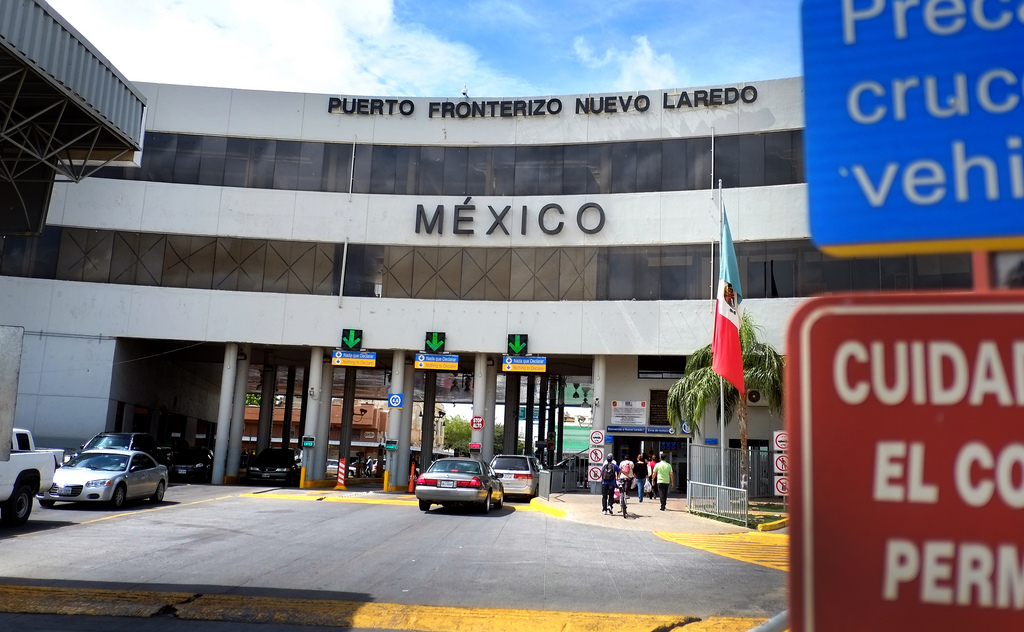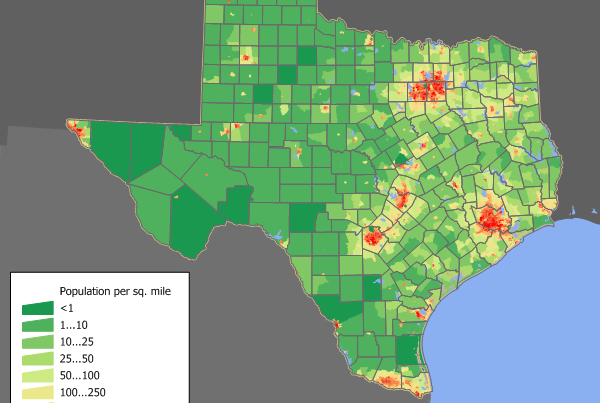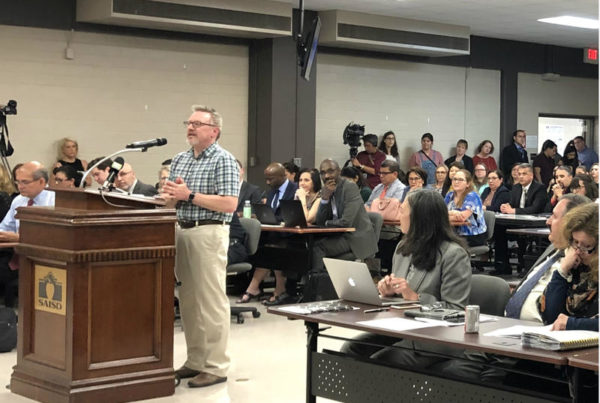On Friday, President Donald Trump tweeted that he would close some or all of the U.S. border with Mexico this week “[i]f Mexico doesn’t immediately stop ALL illegal immigration.” There are over 40 U.S.-Mexico border crossings and more than 300 ports of entry, and experts predict their closure would affect more than $1.7 billion worth of commerce every day. Areas along the U.S.-Mexico border would experience the most direct impact, but ripple effects could spread beyond the region.
It’s unclear whether Trump will follow through on his threat, but Laredo Mayor Pete Saenz – who’s also chairman-elect of the Texas Border Coalition, a collective of border mayors, county judges and more who advocate for border communities at the Texas Legislature – is preparing in case it happens. He’s also speaking out against closing the border.
“We gotta stay away from that rhetoric of closing the border. There’s no declaration of war, the imminent danger we don’t see,” Saenz says. “Obviously, we do have issues and we agree with the president, but I think … the solution lies with Congress and, of course, our president as well.”
He says changing asylum and immigration laws would be a better solution.
“That’s really where the root is,” Saenz says.
He says Congress needs to address the shortage of immigration judges in border regions, which could help process asylum claims more efficiently. But also, he says the law needs to reflect the growing number of families seeking asylum; the law only lets the government detain families for 20 days, which he says usually isn’t long enough to process a case. Lastly, Saenz says the U.S. needs to find a way to help the countries where the asylum-seekers are coming from – commonly the “Northern Triangle” countries of Guatemala, El Salvador and Honduras.
“These folks may have every reason to leave their country,” Saenz says. “But obviously, it’s creating issues here at the border, and then there’s reaction by President Trump, which is creating, also, all sorts of havoc.”
Saenz says he believes some immigrants take advantage of U.S. asylum laws, and “abuse the system,” which he says has led to the surge of asylum-seekers coming to the southern border. But those people are acting within their rights; they are legally allowed to cross the border, surrender themselves to the authorities and wait for their asylum case to be reviewed. Saenz says that’s why Congress should change asylum law.
“Congress hasn’t acted, neither for changes in the asylum law, nor comprehensive immigration reform, and that’s what we need. But they’re playing games and we’ve had enough of that here at the border,” Saenz says.
But Saenz doesn’t think closing the border will help. In fact, he says it would be “devastating.” The economic effect alone would be huge because Mexico is America’s No. 1 trading partner. Laredo, specifically, trades $230 billion worth of goods annually with Mexico, and about 15,000 trucks cross the border between Laredo and Mexico every day, Saenz says.
“This would create a national recession,” Saenz says. “For us here at the border, that’d be a depression, without a doubt.”
He says some don’t realize the value of the close relationship between the U.S. and Mexico, especially at the border, and that the border should only close in extreme cases like a declaration of war.
In the meantime, Saenz says he and Laredoans are worried about Trump’s threat. That’s because the threat alone causes problems, regardless of whether the president follows through.
“Words do carry consequences and uncertainty,” Saenz says. “The mere fact that it’s mentioned, it creates all sorts of economic uncertainty here in the border.”
Customs and Border Protection has temporarily moved Laredo-based officers to help in areas with an influx of asylum-seekers, like the Rio Grande Valley and El Paso. But that has created an officer shortage in Laredo, which Saenz says slows down movement across the border.
“That means long waiting times, long processing times – it’s gonna create more cost, ultimately, for the consumer,” Saenz says. “We’re so used to just-in-time deliveries, so all that is gonna have a negative ripple effect throughout the economic chain.”
Written by Caroline Covington.














